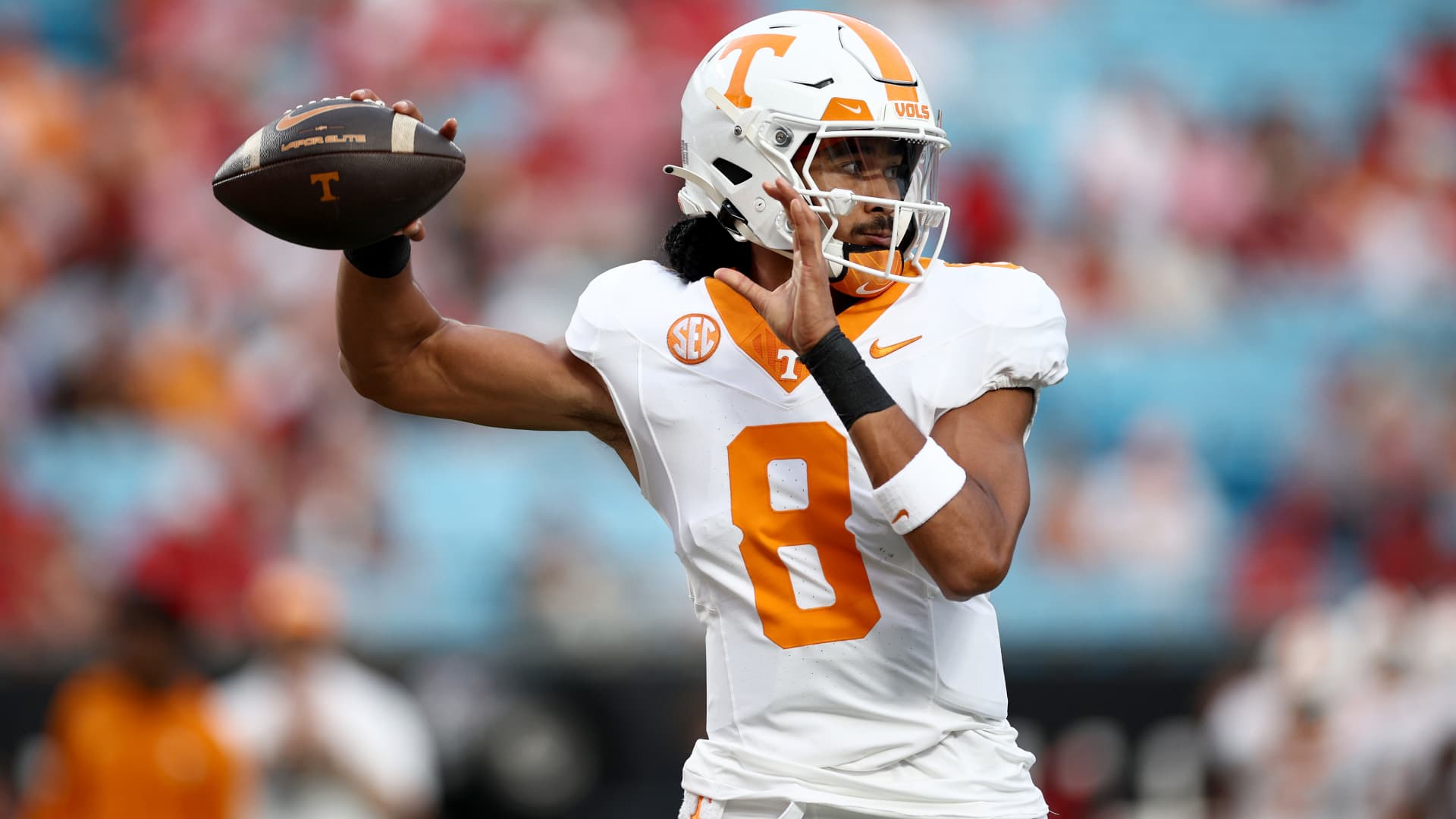Nico Iamaleava, #8 of the Tennessee Volunteers, warms up prior to the Duke’s Mayo Classic against the NC State Wolfpack at Bank of America Stadium in Charlotte, North Carolina, on Sept. 7, 2024.
Jared C. Tilton | Getty Images
The University of Tennessee is raising its season ticket prices by 10% across all its sports to prepare for athletes starting to get a cut of the school’s sports revenue, according to an email sent to football season ticket holders on Tuesday.
Tennessee is calling its hike a “talent fee,” and said it “will help fund the proposed revenue share for our student-athletes,” according to the email.
Athletic departments have been gearing up for revenue sharing after a proposed settlement involving three cases the NCAA is named in. A judge has yet to approve the settlement and expressed concerns this month over some of the terms, but Tennessee believes it could go into effect as soon as July 1, according to the email.
The proposed settlement would give $2.78 billion in backpay to student-athletes and would allow schools to pay players up to 22% of the Power Five schools’ average athletic revenue in a given year going forward, according to the NCAA release. It would also get rid of a cap on scholarships.
“As the collegiate model changes, we have to remain flexible,” Tennessee athletic director Danny White said in a video included in the email. “We have to continue leading the way. That connection between resource and competitiveness has never been tighter, only now we have the ability to share these resources with our student-athletes.”
The changes will go into effect beginning with the 2025 football season and will also include a 4.5% hike on single-game tickets.
Tennessee already has one of the biggest athletic departments in the country, coming in at eighth overall for total operating revenue in the 2022-23 season in Sportico’s database of public university athletic departments.
College athletes have been permitted to profit off their name, image and likeness since 2021, which has changed college sports dramatically. Star athletes have been able to sign big endorsement deals, but universities have not started direct revenue sharing, which would benefit more student-athletes.

